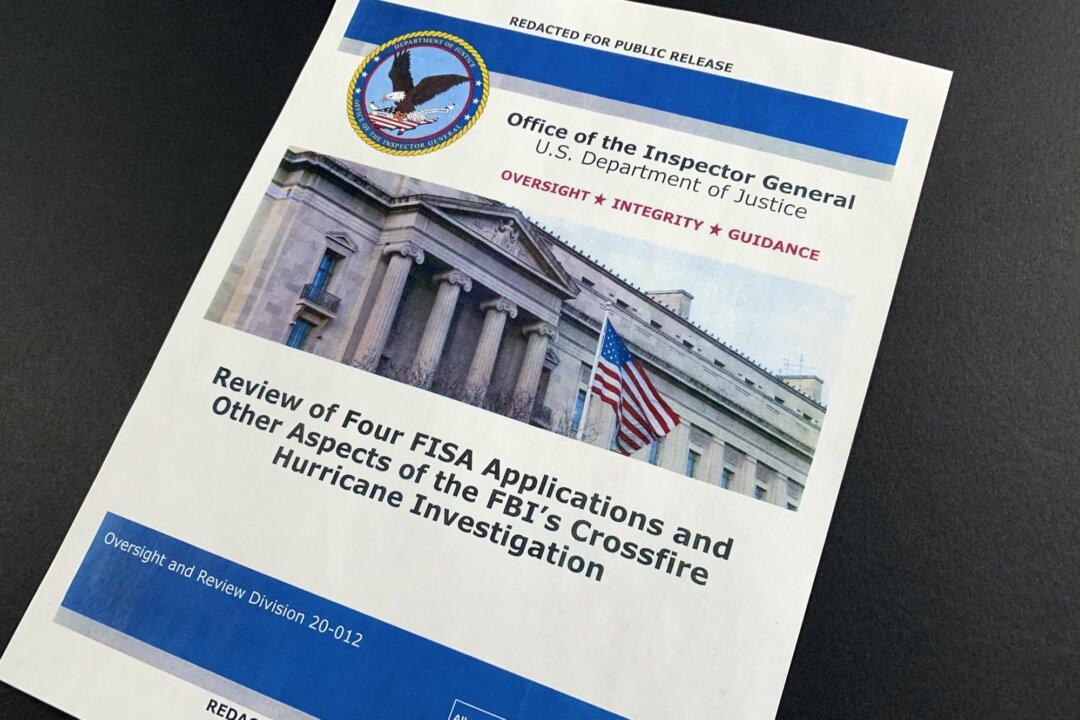The U.S. government’s reliance on secret surveillance warrants dropped to the lowest level on record in 2019, amid intense scrutiny of the FBI’s infamous investigation of the Trump campaign.
The secret federal surveillance court approved 907 Foreign Intelligence Surveillance Act (FISA) applications last year, targeting 1,059 individuals or entities, according to an annual transparency report released by the Office of the Director of National Intelligence on April 30. The figures are the lowest since the agency began reporting on the statistics in 2013.





